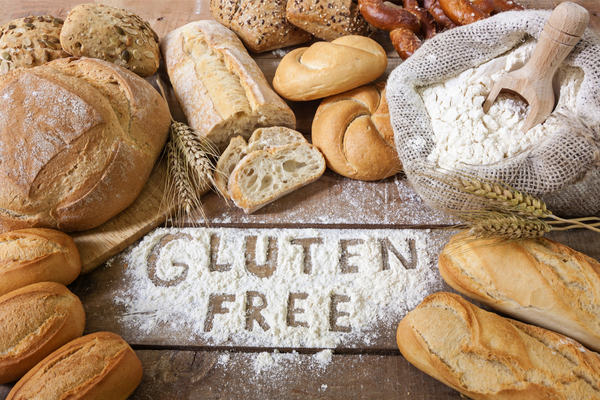Gluten-free options might be offered on every menu now, but is gluten actually an enemy for all?
It’s clear that many people with food intolerances, and especially those with celiac disease, benefit from following a gluten-free diet. Celiac disease is a chronic digestive and immune disorder that damages the small intestine. The disease is triggered by eating foods containing gluten, and can cause long-lasting digestive problems and keep your body from getting all the nutrients it needs.
It might seem like everyone and their mother is allergic to gluten, but many of these “diagnoses” are not medically tested or accurate. Allergies are often over-diagnosed, especially among those who self-diagnose. In reality, only 1 percent of people have celiac disease in the United States, many of whom were diagnosed at a young age. If a person has been eating gluten for their entire lives and “discovers” a gluten allergy later, it’s likely they’re not allergic.
Still, non-celiac-related intolerances have surged in recent years. Some of the more jarring myths about gluten have been steering consumers away from wheat and toward stale substitutes. Does gluten mess up your stomach? Is gluten bad for you? Does gluten cause cancer? Some who advocate for trendy diets such as Whole30 and paleo say that eliminating gluten and limiting carbs is best for your health, claiming that eliminating gluten will “heal your gut,” and “give you more energy,” but that might not necessarily be true.
Before learning more about whether going gluten-free is best for you, first it’s important to understand what gluten even is. According to The Daily Meal, gluten is a naturally-occurring protein found mainly in grains and wheat products. Biologically, gluten helps the wheat seed to store some of the nutrients it needs to grow into a plant; from a culinary perspective, gluten often acts as a sort of “glue” to hold foods together or to make them stretchy. (The word gluten literally means “glue” in Latin.) It’s incredibly useful for cooks, so there are quite a few foods you wouldn’t expect that contain gluten. But that may not be a bad thing! Here are some of the myths about gluten you should stop believing.
First, foods with gluten often have carbs. But that doesn’t mean all gluten-free foods are low-carb! Lots of carbohydrate-rich foods are included in a gluten-free diet. Rice, for example, is gluten-free. Sugar. Fruit. Potatoes. And that’s just the tip of the iceberg. Also, as The Daily Meal reports, just because a food is marked gluten-free doesn’t mean it’s healthier than the real thing. In fact, one study recently showed that gluten-free versions of foods are often less healthy and more expensive. A gluten-free cereal, for example, might be more heavily processed and made with more added sugar than a cereal made with gluten. The opposite could also be true — the point is that the healthiness of the food does not depend on whether it contains gluten.
Part of the perception around gluten is thought to be linked to industrially processed bread with additives. It pays to read labels. For example, if a product is marked “wheat-free,” it may contain gluten. Barley and rye are two wheat-free foods that do contain gluten. While all gluten-free foods are free of wheat, not all wheat-free foods are free of gluten. Opting for better quality bread can make a big difference if you suffer from food intolerances. But by cutting gluten out completely you might be missing out on potential health benefits, adds Hussain Abdeh of Medicine Direct: “A study has shown that eating gluten is linked to a lower risk of type 2 diabetes. Research has also found that people who eat gluten are at a lower risk of coronary heart disease, too.”
Gluten, in and of itself, is not bad for the vast majority of people. Gluten is simply a protein — it exists naturally in many plants people tend to eat. You may think that eliminating gluten will help to reduce the amount of unhealthy food you eat, since gluten is contained in “unhealthy” foods such as pasta and white bread. However, foods with gluten have important nutrients for your overall health. Bread, for example, has folate, fiber, calcium, potassium, iron, and more. By eliminating the foods, you’re also eliminating the nutrients they provide. And cutting out all or most carbohydrates from your diet is also somewhat ill-advised. People with celiac disease need to be careful to make sure they are getting properly nourished without these popular foods.
Do the research. Read labels carefully. Don’t self-diagnose. Perhaps you could do well going gluten-free… or perhaps not.
—
Photo Credit: xamnesiacx / Shutterstock.com
